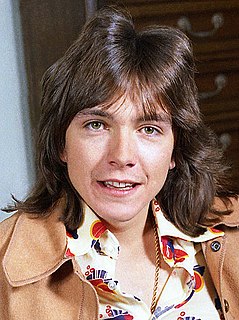A Quote by Marianne Williamson
I think the heartbreak of September 11 - America's grief not only over the loss of life but also the loss of our own innocence -has expanded us as people because it has tenderized our hearts. On a psychological level, the American people have matured as a result of that awful day.
Related Quotes
Grief is real because loss is real. Each grief has its own imprint, as distinctive and as unique as the person we lost. The pain of loss is so intense, so heartbreaking, because in loving we deeply connect with another human being, and grief is the reflection of the connection that has been lost. We think we want to avoid the grief, but really it is the pain of the loss we want to avoid. Grief is the healing process that ultimately brings us comfort in our pain.
September 11 was, and remains, above all an immense human tragedy. But September 11 also posed a momentous and deliberate challenge not just to America but to the world at large. The target of the terrorists was not only New York and Washington but the very values of freedom, tolerance and decency which underpin our way of life.
When you go through hell, your own personal hell, and you have lost - loss of fame, loss of money, loss of career, loss of family, loss of love, loss of your own identity that I experienced in my own life - and you've been able to face the demons that have haunted you... I appreciate everything that I have.
Money gained on Sabbath-day is a loss, I dare to say. No blessing can come with that which comes to us, on the devil's back, by our willful disobedience of God's law. The loss of health by neglect of rest, and the loss of soul by neglect of hearing the gospel, soon turn all seeming profit into real loss.
Our ego ideal is precious to us because it repairs a loss of our earlier childhood, the loss of our image of self as perfect and whole, the loss of a major portion of our infantile, limitless, ain't-I-wonderful narcissism which we had to give up in the face of compelling reality. Modified and reshaped into ethical goals and moral standards and a vision of what at our finest we might be, our dream of perfection lives on--our lost narcissism lives on--in our ego ideal.
Grief is not just a series of events, stages, or timelines. Our society places enormous pressure on us to get over loss, to get through grief. But how long do you grieve for a husband of fifty years, a teenager killed in a car accident, a four-year-old child: a year? Five years? Forever? The loss happens in time, in fact in a moment, but its aftermath lasts a lifetime.
On September 11th, 2001, in our time of grief, the American people came together. We offered our neighbors a hand and we offered the wounded our blood. We reaffirmed our ties to each other and our love of community and country. On that day, no matter where we came from, what God we prayed to, or what race or ethnicity we were, we were united as one American family.
I think the biggest thing that I have to do is to remind people that poetry is there for us to turn to not only to remind us that we're not alone - for example, if we are grieving the loss of someone - but also to help us celebrate our joys. That's why so many people I know who've gotten married will have a poem read at the wedding.

































